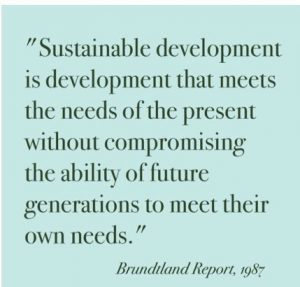Sustainability at ICBE – November 2021
The ICBE team is looking at ways for ICBE to become more sustainable and climate ready.
The first step was for staff to attend a 90-minute programme on changes & procedures that can be implemented within the office environment where we can play our part in the overall collective response to climate action.
Ireland has committed to reduce carbon emissions by 50% by 2030.
This can only be done by reducing the demands on our energy and natural resources.
Sustainability has been described as "meeting the needs of the present generation without compromising the ability of future generations to meet their needs" (Brundtland, 1987).

Climate change is caused by the release of greenhouse gases (CO2 accounts for the largest amount) from human activities such as energy generation, transportation, and agriculture resulting in a build-up of heat trapping gas in the earths’ atmosphere.
The current global energy crisis has led to important global energy policy such as the 1997 Kyoto Protocol (191 countries have provided their signatures for the Kyoto Protocol which pledges their commitment to reaching national targets for reduction of greenhouse emissions) and subsequent energy and climate conventions to target and address the energy crisis.
In 2015, the 21st International Environment agreement on climate change took place in Paris (referred as COP21). Seen as an historic event; 195 nations agreed to combat change and carry out actions and investments towards a low carbon and more sustainable future.
COP26, the 26th United Nations Climate Change conference, is being held in Glasgow between 31 October and 12 November 2021.
Workplace Tips |
|
Waste Hierarchy
|
1. Prevention – Evaluate the functionality of an employee device before approving an upgrade2. Minimisation – Locate printers in convenient locations that can be shared between departments3. Reuse – Donate old laptop and devices to charities or local schools4. Recycle – IT waste is separated from other waste and taken to a local collection point5. Recovery – Scrap obsolete IT equipment for spare parts6. Disposal – Throw out obsolete IT equipment |
Energy |
· Turn off lights· Do not leave lights on overnight· Use energy saving bulbs |
Heating |
· Switch off heating in areas of no use· Ensure heating not obstructed· Set thermostat as low as is comfortable· Ensure windows closed when air conditioning on· Turn heating off when not in use |
Transport |
Working from home 1 day a week will reduce CO2 emissions by 5% |
Waste management and environmental performance |
|
Water |
· Turn off tap while washing handsGlobal water demand is due to outstrip demand by 2030 |




